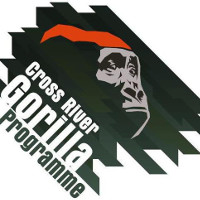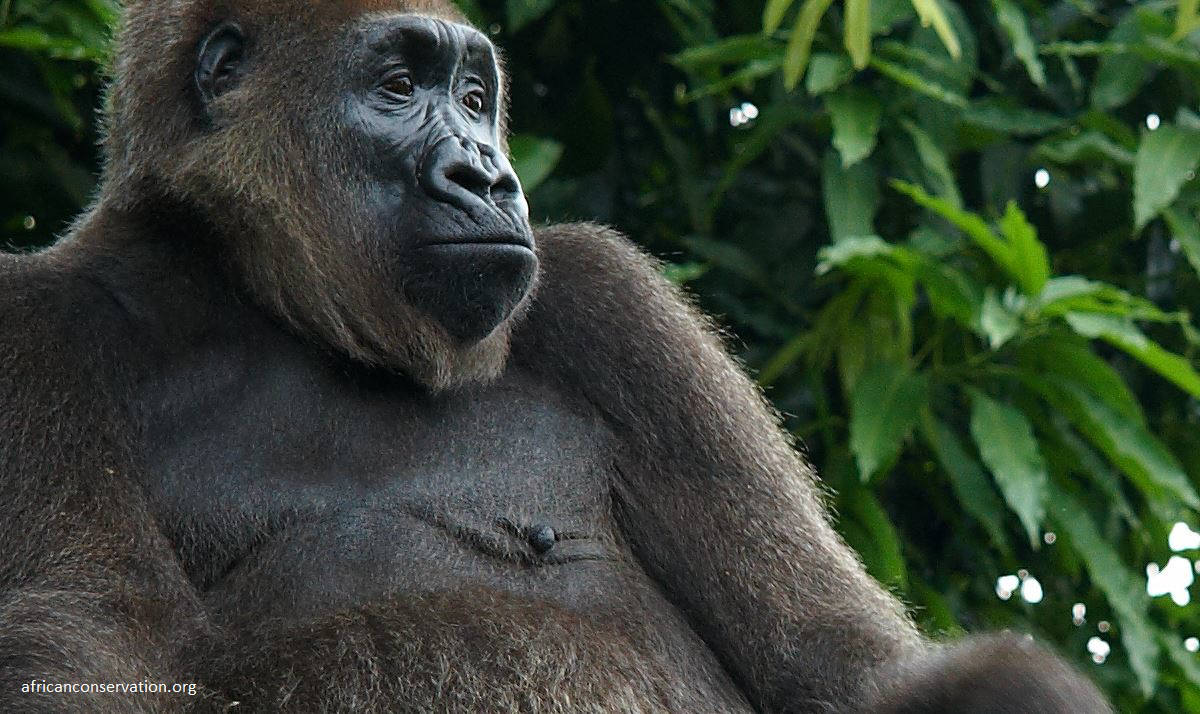Lebialem Highlands: Urgent Cross River Gorilla Conservation Priorities
Biodiversity in the Lebialem Highlands is highly threatened, with IUCN Red List species such as the Gross River Gorilla, the Nigeria-Cameroon Chimpanzee and the African Forest Elephant unprotected due to two dreadful crises: the outbreak of the Cameroon Anglophone crisis and COVID-19. Government biodiversity officials in Anglophone Cameroon have been absent in most areas.
Anglophone crisis
The conservation of wildlife and their habitats in the Lebialem Highlands was paralyzed in 2017 by the Anglophone crisis that forced the management of the Tofala Hill Wildlife Sanctuary to leave the area. Many people sought refuge in the rainforest. As a result of this war, government conservation activities were halted including, monthly anti-poaching patrols, village sensitization campaigns, research and monitoring. The armed conflict also resulted to massive destruction of local livelihoods, properties and homes.
In most areas in the Lebialem Highlands, the affected population is living in those parts of the forest where accessibility is difficult. The people who are living in the protected area are largely dependent on their natural resources including globally threatened species. This is because the people have not many other livelihood options.
Apart from the current state of the protected areas in the Lebialem Highlands, the crisis has resulted in an increase in gender based and sexual violence, a total close down of educational facilities, loss of homes, construction of new camps in the forest, and recruitment of young people into the armed separatist movement.
In the midst of the worsening Anglophone crisis, most Forest Rangers have been caught up in what can be termed a “bitter ordeal”. In the Lebialem Highlands, Ecoguards had to deal with the consequences of the crisis, especially with frequent military and secessionist raids in and around the villages, coupled with the COVID-19 pandemic.
During an interview with a Green Vision newspaper reporter, Community Rangers recounted that their guns have been seized, their main sources of livelihood destroyed which makes wildlife conservation more difficult. Law enforcement in these areas of operation is in the hands of secessionist fighters, with schools, markets and hospitals completely closed.
“New farms have been created in the sanctuary, most families have been displaced, there have been an increase of unwanted pregnancies and little or no medical facilities”, according to one Community Ranger. “I depend only on my farm for survival. My children have all stopped schooling as there are no schools. I don’t even know where some of my children are, as some of them ran away from the village.” Another Community Ranger who voted anonymity revealed that, poaching by guns has reduced drastically because local hunter’s guns have been seized. Trapping however has increased. He also noted that, there has been an increase in the number of gorillas, chimpanzees and other animals “given that they come right down to his farm and feed on plantain and banana stocks”.
Conservation projects
Despite the challenges, the African Conservation Foundation and Environment and Rural Development Foundation are even more determined to save biodiversity in the Lebialem Highlands, while helping the local communities in this difficult period. Through a new programme called the Lebialem Highlands Initiative, the partners are committed in the next 15 years to the conservation of Biodiversity with focus on the Cross River Gorillas, the Cameroon Nigerian Chimpanzee, the African Forest Elephant and other wildlife species in the area.
Project acivities will focus on nurturing and promoting the conservation in the Tofala Hill Wildlife Sanctuary, the proposed Njoagwi Fotabong Essoh Attah Wildlife Sanctuary , Sanchou Wildlife reserve and the associated corridors.
According to Louis Nkembi, the President and founder of ERuDeF, the situation of biodiversity in the Lebialem Highlands requires tailored approaches. “The outbreak of the Anglophone crisis forced many people to flee into neighbouring towns but also into the forest. Those in the forest rely on forest resources for subsistence and livelihood”.
Information collected from local informants show that hunting with guns has been on a steady decrease while encroachment for agricultural purposes and hunting through trapping has been on the increase. Such traps form a great threat to great apes and other large mammal species. According to Tim Killian, the Focal point Manager of the Lebialem Highlands, the initiative is currently revising its conservation strategies in the Lebialem Highlands, in order to focus on the most important and urgent actions that can be conducted by trained and equipped Community Rangers.
Conservation priorities
Some of the urgent priorities include the reassessment of the current population status of the Cross River Gorillas, Nigerian Cameroon Chimpanzees, African Forest Elephants and other species, assessing the current impact of forest encroachment of forest inhabitants and assessing the best protection and management options that will be used in the context of the current Anglophone crisis. We will put into place an effective education strategy that will engage all the stakeholders into the conservation of these species. The new strategy is also considering the development of a biodiversity in crisis fund and as well as an economic recovery fund and education fund to support conservation in times of crisis and other pandemics.
The Government of Cameroon recently approved the management plan of the Tofala Hill Wildlife Sanctuary, the first of its kind, for a sanctuary in Cameroon. Please donate now to support these brave Community Rangers with training, equipment and salaries – thank you!

